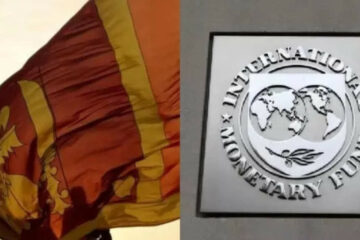[ad_1]
We are looking at these rescues time and again shoring up the banking system and the latest, of course, being First Republic. Given that we have seen these steps being taken, it certainly is instilling a sense of confidence among investors across the globe that the contagion effect is not going to be that harmful.
We have seen this movie before. The regulators have learned a lot since the Global Financial Crisis in 2008. Back in March 2020, we had financial markets in the US come under a lot of pressure. The regulators stepped in, very quickly provided a lot of liquidity and the problem disappeared quite quickly. We are seeing a replay of that. The regulators know now that you need to act quickly, that you need to bring the big bazooka out before the problem gets serious and I think that they are going to have this under control. I am curious to understand the views on India and your Asian investment conference, which is going to take place soon. The themes that you have actually picked up for the longer run and they are quite intriguing. Let us pick up the first — winners of a weak dollar. Who do you think fits best in that category?
Well, if we look at it from a stock market perspective, the markets that are more export oriented tend to do better because a weak dollar is actually good for global trade. So, the likes of Singapore, Malaysia, Taiwan tend to outperform in an environment of a weak dollar. If you are looking at sectors, it tends to be again the sort of globally oriented sectors like energy, like materials and commodities.
Do you think in terms of confidence crisis, which global markets were suffering with, especially after the SVB debacle, that confidence has come back because let us say 24 hours ago, 48 hours ago, the fear in the system was that what if there is a contagion? What if the regulators do not step in? What if there is another run on banks? Do you think a lot of these what if questions are addressed now?
I think that we will move past this fairly quickly. A key reason is that the problems with the banking sector in the US right now are not about credit quality. It is largely a liquidity issue and it is very easy or relatively easy for central banks to deal with liquidity issues. It is much harder to deal with solvency and NPLs, that requires more of an effort from the government and that usually is lagging. So, I think in this case, we hope that the problem is not that serious.
Walk us through the rationale for picking out a Zomato at a time like this.
Well in general, we are looking for stocks that would be exposed to a rising middle class. The theme that you mentioned is that we have been seeing falling income inequality in Asia over the past decade, I should say emerging market Asia, India included and that means that you get supercharged growth in the middle class and the middle class, what do they do? They spend. So, we like consumer discretionary as a theme.
[ad_2]


